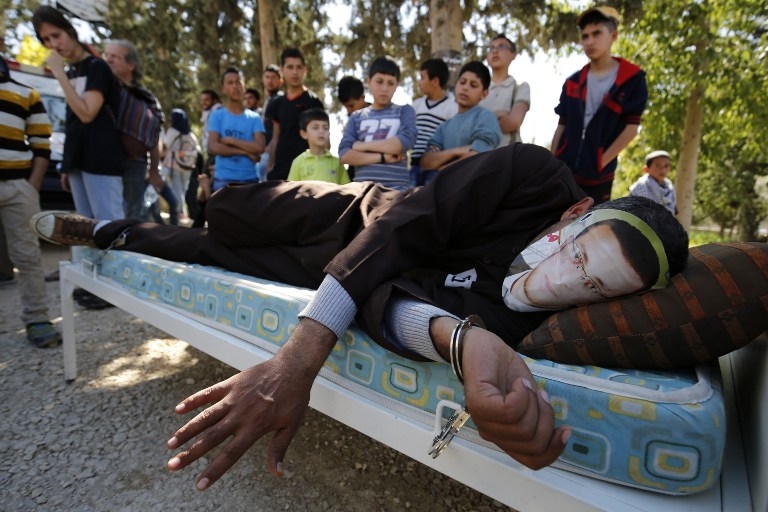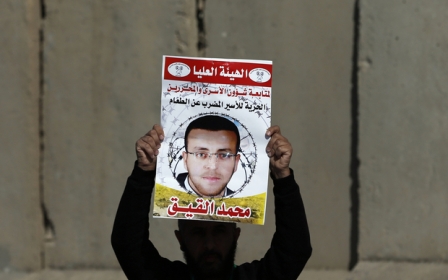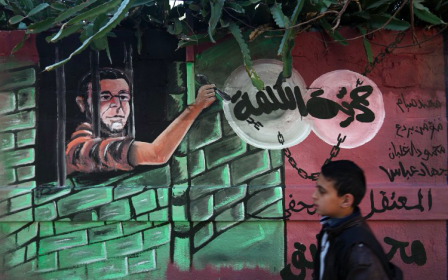Palestinian ends 93-day hunger strike as jail deal reached

Hours after a deal brought an end to his 93-day hunger strike, Palestinian journalist Mohammed al-Qiq has been rushed to an emergency room as medical staff give him vitamins and salt, his supporters told Middle East Eye.
"Just in case his body will respond in a panic, he should be in the emergency room," Joint List MK Osama Saadi, told MEE from the Afula hospital where Qiq is being treated. "But his spirit is very high - he is very happy and very satisfied."
Late on Thursday, Palestinian and Israeli officials agreed that Qiq, arrested in November and since held in custody under Israel's administrative detention law, will be released on 21 May instead of 21 June.
Qiq and his lawyer had originally requested that the 33-year-old journalist from Ramallah be transferred to al-Makassed hospital in East Jerusalem, but he will spend the rest of his detention in the hospital in Afula.
According to the agreement, his family, who have been prevented from seeing him during his detention, will also be allowed to visit.
"It’s a big achievement not just for our family, but for all of the Palestinian people," Fayhaa Shalash, al-Qiq's wife, told MEE on Friday.
Mohammed Barakeh, the head of the Higher Arab Monitoring Committee, told Haaretz that al-Qiq's hunger strike had "ended in victory".
"This is a big embarassment for Israel," Amjad Abu Asab, the head of the Prisoners Public Committee in Jerusalem, told Middle East Eye from Afula hospital where he and other advocates were celebrating.
"He managed to show Israel how it is fighting simple people, like journalists and workers," Abu Asab said.
Qiq, a father of two and correspondent for Saudi Arabia's Almajd TV network, was arrested at his home in Ramallah on 21 November.
Israel's Shin Bet domestic security service has said he was arrested for "terror activity" on behalf of the Islamist political party Hamas, which controls the Gaza Strip.
He has been refusing food since 25 November in protest against the "torture and ill-treatment that he was subjected to during interrogation," according to Addameer, a Palestinian human rights organisation.
Shalash, al-Qiq’s wife, told MEE back in January that when her husband was arrested, the Israeli army confiscated some of his belongings before handcuffing and blindfolding him.
“Ever since, I wasn’t able to see him and Israel is still denying me a permit to visit him at Afula hospital,” Shalash said, and appealed to Palestinians within Israel to hold a sit-in outside the Supreme Court and the hospital.
The UN has expressed concern about his fate, with the International Committee of the Red Cross describing his condition as critical.
Israel's controversial administrative detention law allows the state to hold suspects without charge or trial for periods of six months renewable indefinitely.
Middle East Eye propose une couverture et une analyse indépendantes et incomparables du Moyen-Orient, de l’Afrique du Nord et d’autres régions du monde. Pour en savoir plus sur la reprise de ce contenu et les frais qui s’appliquent, veuillez remplir ce formulaire [en anglais]. Pour en savoir plus sur MEE, cliquez ici [en anglais].



